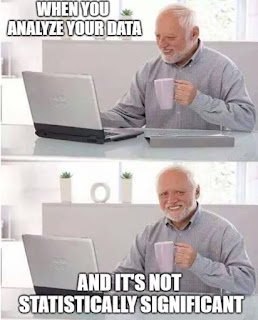The difficult part of technical writing
Technical writing is decently
intuitive to me because it is typically divided into discrete sections: the abstract,
introduction & background, materials & methods, results, and implications
& future work. Excluding the abstract, each section logically leads into
the next one without the need for elegant transitions, unlike creative writing.
I typically like to write the
introduction first, as it gives me a good idea of what the general goal of the
paper is. It helps me to focus my methods section and the rest of the paper to
only include material which is necessary for the goal of the study. I like to
write the methods section after, as it reminds me of which experiments were
important to the study and thus what data I should include in my results
section. When I get to the results section, the introduction and methods have given
me a good idea of what figures to make and what data to include. This leads me
into writing the implications & future work section, where I write about
the results.
However, once I have written what
happens throughout the study, I still have to complete the abstract. This part
is the most difficult for me to write well, because of the amount of
information I must get into as little writing as possible. The abstract section
is the most important section of technical papers in my opinion, because that
is often the only part of an article people will read.
I leave the abstract for last, because
once the rest of the paper is written I can look through it and better identify
the most important takeaways. I think reducing unimportant parts of the study
from the abstract is optimal so when people read the abstract, they can get a
good sense of what I was going for with my paper.
Though the data summary was mainly
just bulleted points, I think I will take this order of writing when I approach
the full research paper in module 2. However, before I start any writing I plan
to write a full outline of the paper, so I don’t get as stuck throughout the
writing process. Also, one thing that helped me immensely in getting through this data
summary was before I began, I created a timeline of what needed to get done and
when. I feel that breaking this big project into smaller ones that had very clear
end goals made it a lot more approachable and less intimidating.



Comments
Post a Comment